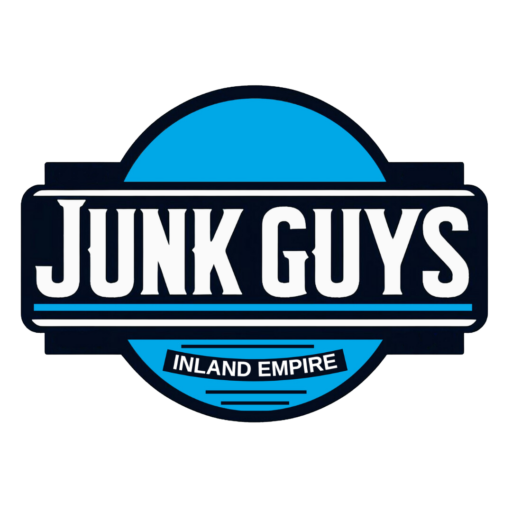Managing bulky household appliances can be a challenging task, especially when they reach the end of their life cycle. Whether it’s an old refrigerator, washing machine, or stove, disposing of these large items responsibly is essential. That’s why understanding the best practices for bulk appliance pickup and recycling services is so important. Efficiently handling these appliances not only keeps your space clutter-free but also contributes to environmental sustainability by ensuring proper recycling.
In this article, we’ll explore top tips to streamline your bulk appliance pickup experience and guide you through eco-friendly disposal methods.
Why Bulk Appliance Pickup Matters
Before diving into the tips, it’s helpful to understand why bulk appliance pickup services are valuable:
- Convenience: Handling large appliances alone can be labor-intensive and unsafe. Professional pickups alleviate this burden.
- Environmental Responsibility: Appliances contain materials like metals, plastics, and refrigerants that require careful disposal or recycling.
- Legal Compliance: Many municipalities have regulations against dumping bulky waste in regular trash, necessitating bulk pickup services.
By choosing an efficient bulk appliance pickup service, you contribute to reducing landfill waste and promoting recycling.
1. Schedule Pickup in Advance
Bulk appliance pickup services often require appointments due to equipment and personnel needs. Scheduling your pickup in advance helps ensure prompt service and avoids last-minute delays.
- Contact your service provider at least a week before you plan on discarding your item.
- Check if there are designated pickup days for bulky items in your area to align your schedule accordingly.
2. Prepare Appliances Properly for Pickup
Proper preparation can speed up the pickup process:
- Disconnect and clean: Unplug appliances and clean them to prevent any leakage or electrical hazards.
- Remove detachable parts: Take off cords, shelves, or any removable accessories.
- Secure doors: Tape doors shut on refrigerators or ovens to avoid accidental opening during transport.
3. Understand What Items Are Accepted
Not all appliances are accepted by every bulk pickup or recycling service. It’s important to clarify which items can be collected:
- Commonly accepted: refrigerators, freezers, washers, dryers, ovens, dishwashers.
- Items sometimes excluded: microwaves, small kitchen appliances, or electronic devices (these may need e-waste recycling options).
Check your local service’s guidelines or municipal website to ensure compliance.
4. Remove Hazardous Materials When Possible
Many bulk appliances house hazardous materials such as refrigerants, mercury switches, or lead components. Professional recyclers know how to safely handle these, but you can help by:
- Informing the service about any hazardous contents.
- Avoiding disposal of batteries or fluorescent bulbs within the appliance.
Specialized disposal may be required for hazardous components to protect the environment.
5. Choose a Certified Recycling Service
Selecting a recycling service with official certifications (e.g., R2 certification or e-Stewards) guarantees responsible handling.
Certified recyclers adhere to stringent environmental standards, ensuring recyclable parts are recovered and hazardous materials disposed of safely. This aligns with best practices and can prevent your appliances from ending up in landfills.
The Environmental Impact of Recycling Bulk Appliances
Recycling appliances isn’t just about tidying your home; it has tangible environmental benefits:
- Metal Recovery: Steel, aluminum, and copper can be reclaimed and reused, reducing the need for virgin mining.
- Energy Savings: Recycling metals uses significantly less energy compared to producing them from raw materials.
- Preventing Pollution: Proper refrigerant removal avoids the release of harmful greenhouse gases into the atmosphere.
According to the U.S. Environmental Protection Agency (EPA), electronic waste and large appliances contribute to a significant portion of landfill waste, with many materials being recyclable (source). Responsible recycling through bulk appliance pickup programs helps tackle this environmental challenge.

Step-by-Step Guide: How to Prepare for Bulk Appliance Pickup
- Identify the Appliance: Know the make, model, and condition to provide accurate details if scheduling pickup.
- Clear a Pathway: Ensure easy access from your home or apartment to the pickup location or curbside.
- Schedule Pickup: Contact your chosen bulk appliance pickup or recycling provider ahead of time.
- Prepare the Appliance: Disconnect all utilities and remove accessories as outlined above.
- Label or Inform: Mark appliances if required or notify handlers of any special instructions.
- Place Appliance at Designated Spot: Follow your provider’s guidelines, typically curbside on pickup day.
- Confirm Pickup: Stay available to answer questions or assist the handlers.
Frequently Asked Questions About Bulk Appliance Pickup
Q1: What exactly qualifies as bulk appliance pickup service?
A1: Bulk appliance pickup is a service where large household appliances such as refrigerators, washers, dryers, and ovens are collected from your home or curbside for disposal or recycling.
Q2: How often can I schedule a bulk appliance pickup?
A2: Frequency depends on local regulations and the service provider. Some areas offer monthly or bimonthly collection days, while others allow scheduling on-demand.
Q3: Are there fees associated with bulk appliance pickup?
A3: Fees vary by service and location. Some municipal programs offer free pickups, while others may charge based on item size, quantity, or material. Always inquire beforehand.
Conclusion: Make Your Bulk Appliance Pickup Hassle-Free and Eco-Friendly
Disposing of bulky appliances doesn’t have to be a daunting process. By following these top tips for efficient bulk appliance pickup and recycling services, you can save time, avoid headaches, and contribute positively to environmental stewardship. Remember to schedule early, prepare appliances safely, and choose certified recyclers to maximize benefits.
If you’re ready to declutter and recycle appliances responsibly, start by contacting a local professional bulk appliance pickup service today. Taking this simple step will help your community stay clean and greener for generations to come!
For more on responsible waste management and appliance recycling, visit the EPA’s Electronic Waste page to learn how you can make a difference.
Junk Guys Inland Empire
Phone: 909-253-0968
Website: www.junkguysie.com
Email: junkguysie@gmail.com
